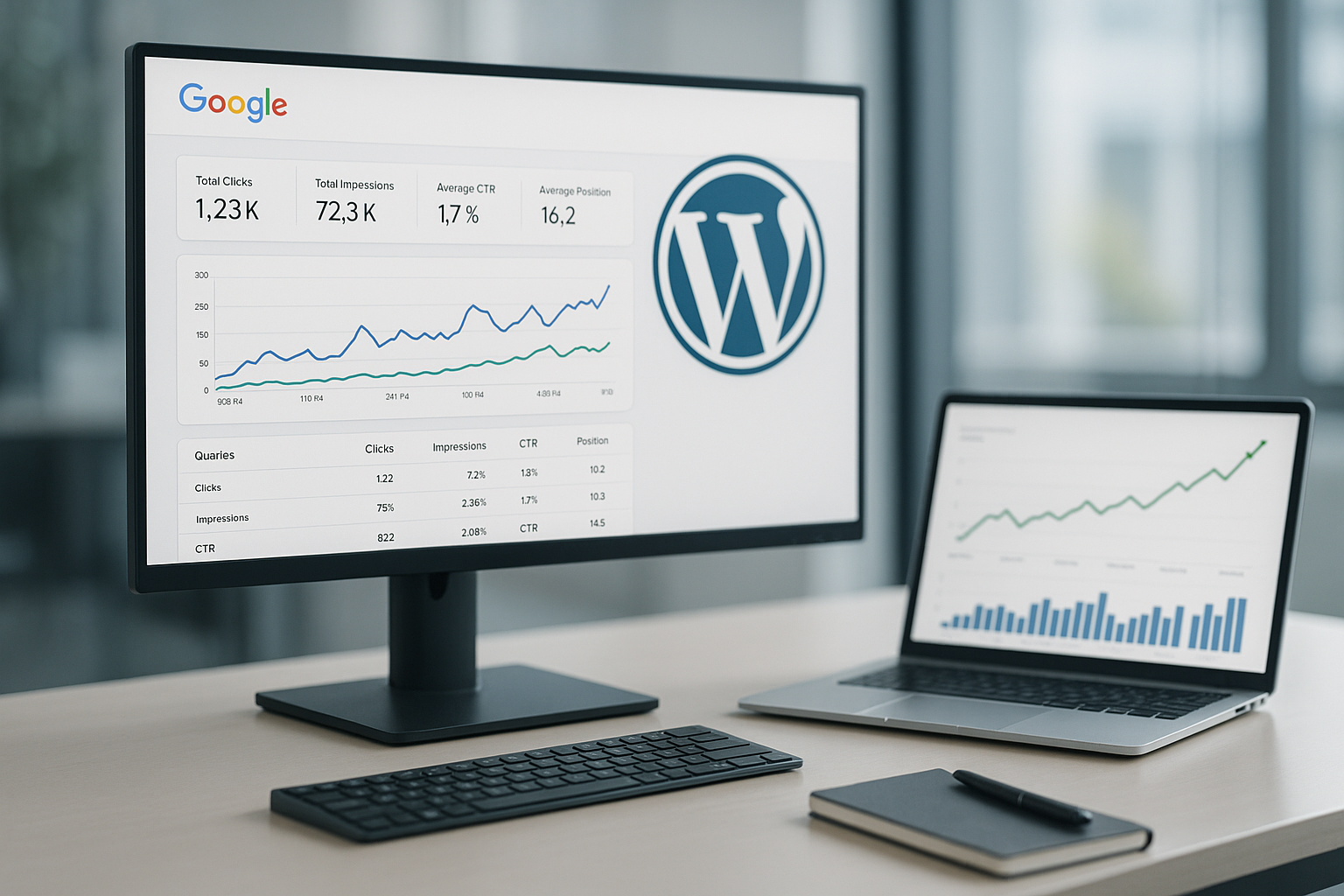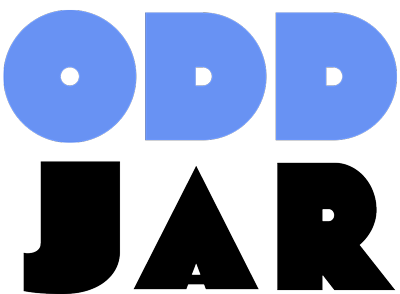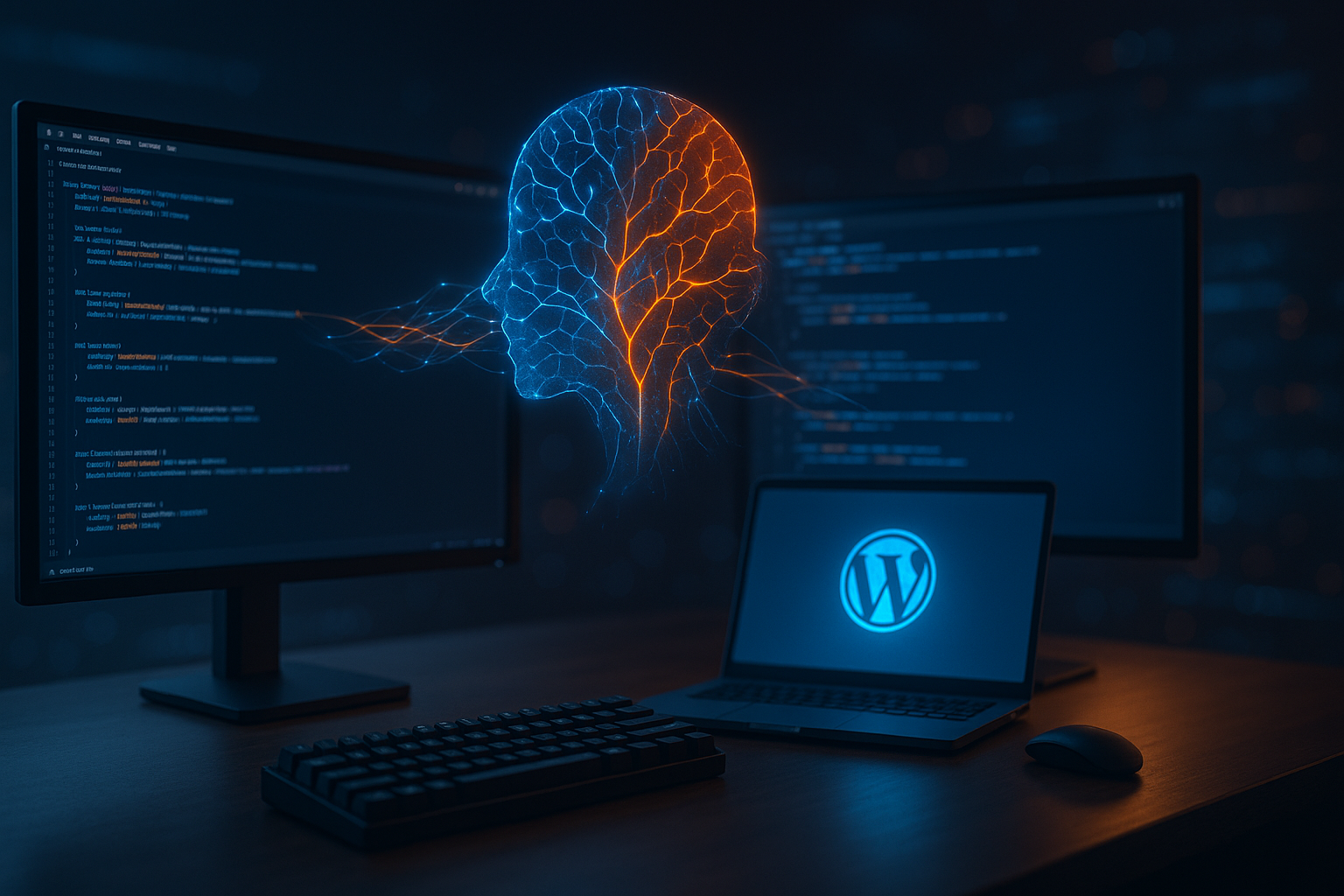Artificial intelligence has fundamentally transformed how developers approach WordPress plugin creation in 2025. From automated code generation to intelligent debugging assistance, AI tools are empowering developers of all skill levels to build more sophisticated, efficient, and user-friendly plugins than ever before. Whether you’re a seasoned developer looking to accelerate your workflow or a newcomer eager to enter the WordPress ecosystem, understanding how to leverage AI in your development process is no longer optional. It’s essential.
The landscape of AI wordpress plugin development has evolved dramatically, with new tools emerging monthly and established platforms continuously improving their capabilities. This comprehensive guide will walk you through everything you need to know about integrating AI into your WordPress plugin development workflow, from selecting the right tools to implementing best practices that ensure your plugins are both powerful and maintainable.
Understanding AI’s Role in Modern WordPress Plugin Development
The integration of AI into WordPress plugin development represents a paradigm shift that goes far beyond simple code completion. Today’s AI tools can understand context, generate complex logic, debug issues, and even suggest architectural improvements. This transformation is particularly significant for WordPress developers because plugin development often involves repetitive patterns, standardized hooks and filters, and well-documented APIs that AI models can learn and replicate effectively.
Modern AI-powered development tools excel at understanding WordPress’s unique ecosystem. They can generate code that follows WordPress coding standards, implement proper sanitization and validation, create database schemas that align with WordPress conventions, and even suggest appropriate hooks for specific functionality. This deep understanding of WordPress architecture means AI can serve as both a coding assistant and an architectural advisor.
Pro Tip
Start small with AI assistance—begin by using it for generating boilerplate code and standard WordPress functions before moving on to more complex architectural decisions. This approach helps you understand the AI’s strengths and limitations while building confidence in the generated code.
The most successful developers in 2025 aren’t those who rely entirely on AI or completely avoid it, but those who understand how to collaborate effectively with AI tools. This collaborative approach leverages AI’s speed and pattern recognition while maintaining human oversight for creative problem-solving, user experience decisions, and quality assurance.
Key Benefits of AI-Assisted Plugin Development
- Accelerated Development Cycles: AI can generate boilerplate code, implement standard patterns, and create initial plugin structures in minutes rather than hours
- Improved Code Quality: AI tools trained on best practices can suggest improvements and identify potential security vulnerabilities
- Enhanced Learning: Developers can learn new techniques and patterns by studying AI-generated code and explanations
- Reduced Technical Debt: AI can help maintain consistency across codebases and suggest refactoring opportunities
- Cross-Platform Compatibility: AI tools can generate code that works across different WordPress versions and PHP environments
Essential AI Tools for WordPress Plugin Development
The AI tool landscape for WordPress development has matured significantly, offering specialized solutions for different aspects of the development process. Creating WordPress plugins with AI in 2025 has become more accessible thanks to these powerful tools, each serving unique purposes in the development workflow.
| Tool Category | Primary Use Case | Integration Level | Learning Curve |
|---|---|---|---|
| Code Generation | Creating plugin structure, boilerplate code | IDE/Editor | Low to Medium |
| Code Analysis | Security scanning, performance optimization | CI/CD Pipeline | Medium |
| Documentation | Generating docs, comments, README files | Standalone/IDE | Low |
| Testing | Unit tests, integration tests | Testing Framework | Medium to High |
Code Generation and Completion Tools
GitHub Copilot remains the gold standard for AI-powered code completion, offering excellent WordPress-specific suggestions and pattern recognition. Its ability to understand context from comments and existing code makes it particularly valuable for plugin development, where explaining your intent in comments can result in remarkably accurate code generation.
Codeium has emerged as a strong alternative, offering similar functionality with better support for less common WordPress patterns and hooks. Its free tier makes it accessible to individual developers and small agencies, while its enterprise features provide advanced customization for larger development teams.
Cursor represents the next evolution in AI-powered development environments, combining traditional IDE functionality with deep AI integration. For WordPress plugin development, Cursor excels at understanding project structure and can generate entire plugin components based on high-level descriptions.
Specialized WordPress AI Tools
Several tools have been developed specifically for WordPress development, understanding the platform’s unique requirements and conventions. WP-CLI has integrated AI-powered scaffolding that can generate plugin structures following current best practices and security standards.
The WordPress Plugin Handbook now includes AI-generated examples and templates, making it easier for developers to understand implementation patterns and best practices. These resources are continuously updated as WordPress evolves, ensuring developers always have access to current recommendations.

Setting Up Your AI-Powered Development Environment
Creating an effective AI-powered development environment requires careful consideration of tool integration, workflow optimization, and quality control measures. The goal is to create a seamless experience where AI assistance enhances rather than interrupts your natural development flow.
Security Consideration
When using AI tools, be mindful of sensitive data and proprietary code. Many AI services process code on external servers, so review privacy policies and consider using local AI tools for confidential projects.
IDE Configuration and Integration
Modern development environments can integrate multiple AI tools simultaneously, each serving different purposes. Visual Studio Code remains the most popular choice for WordPress development, offering extensive plugin support for AI integration. Key extensions include GitHub Copilot for code completion, CodeGPT for natural language queries, and various WordPress-specific tools that understand the platform’s architecture.
For developers preferring JetBrains products, PHPStorm offers robust WordPress support with excellent AI integration. Its deep understanding of PHP and WordPress APIs makes it particularly effective for complex plugin development projects.
Workflow Optimization Strategies
The key to effective AI-assisted development lies in creating workflows that maximize AI strengths while maintaining human oversight. Start each development session by clearly describing your goals and constraints in comments—this context helps AI tools generate more relevant suggestions throughout your coding session.
Implement a review process where AI-generated code is systematically tested and validated before integration. This includes running security scans, performance tests, and compatibility checks across different WordPress versions. WordPress performance optimization becomes particularly important when integrating AI-generated code, as efficiency patterns may not always be optimal.
AI-Powered Code Generation Techniques
Effective ai wordpress plugin development requires understanding how to communicate effectively with AI tools to generate high-quality, WordPress-compliant code. The most successful developers have learned to craft prompts that provide sufficient context while leveraging AI’s pattern recognition capabilities.
Prompt Engineering for WordPress Development
The quality of AI-generated code directly correlates with the quality of your prompts. Successful WordPress plugin development with AI requires specific, contextual prompts that include information about WordPress version compatibility, required functionality, security considerations, and performance requirements.
When requesting code generation, include details about your target WordPress version, required PHP compatibility, expected user roles and capabilities, and any specific hooks or filters you need to implement. For example, rather than asking for “a contact form plugin,” specify “a contact form plugin for WordPress 6.4+ that integrates with WooCommerce, supports GDPR compliance, and includes spam protection using native WordPress nonces and sanitization functions.”
| Prompt Type | Use Case | Example Application | Success Rate |
|---|---|---|---|
| Contextual Description | Plugin architecture and requirements | E-commerce integration plugins | High (85-90%) |
| Function-Specific | Individual functions and methods | Data sanitization, validation | Very High (90-95%) |
| Pattern-Based | WordPress hooks and filters | Custom post types, meta boxes | High (80-85%) |
| Security-Focused | Secure coding practices | User input handling, nonce verification | Medium (70-80%) |
Advanced Code Generation Strategies
Beyond basic prompting, advanced developers leverage AI for complex architectural decisions and optimization challenges. This includes generating database schemas that efficiently handle large datasets, creating caching strategies that work with popular WordPress caching plugins, and implementing API endpoints that follow REST API best practices.
Five essential tips for AI-powered WordPress plugin development emphasize the importance of iterative refinement—start with basic functionality and gradually enhance features through multiple AI interactions, rather than attempting to generate complete solutions in a single prompt.
Optimization Strategy
Use AI to generate multiple implementation approaches for the same functionality, then combine the best elements of each. This technique often results in more robust and efficient solutions than relying on a single AI-generated approach.
Best Practices for AI-Assisted Plugin Development
Successful integration of AI into WordPress plugin development requires establishing clear guidelines and quality control processes. These practices ensure that AI-generated code meets WordPress standards while maintaining security, performance, and maintainability requirements.
Code Quality and Security Standards
AI-generated code must be thoroughly reviewed for security vulnerabilities, particularly around user input handling, database queries, and file operations. WordPress has specific requirements for data sanitization, validation, and escaping that AI tools may not always implement correctly without explicit guidance.
Implement automated testing pipelines that validate AI-generated code against WordPress Coding Standards using tools like PHP_CodeSniffer with WordPress rules. This ensures consistency and helps identify potential issues before deployment.
Security scanning should be integrated into your development workflow, with tools like Semgrep or PHPStan analyzing code for common vulnerability patterns. AI tools can assist in interpreting these results and suggesting remediation strategies.
Testing and Validation Workflows
AI-generated plugin code requires comprehensive testing across multiple WordPress environments and configurations. This includes compatibility testing with popular plugins, theme compatibility validation, and performance testing under various load conditions.
Develop standardized test cases that can be applied to any AI-generated plugin component. These should include unit tests for individual functions, integration tests for WordPress hook implementations, and end-to-end tests for complete user workflows.
WordPress testing best practices provide guidelines for creating comprehensive test suites that ensure your AI-generated plugins work correctly across different environments and use cases.
Advanced AI Applications in Plugin Development
Beyond basic code generation, AI can assist with sophisticated aspects of plugin development including performance optimization, user experience enhancement, and automated maintenance tasks. These advanced applications represent the cutting edge of ai wordpress plugin development in 2025.

Intelligent Plugin Architecture
AI tools can analyze your plugin requirements and suggest optimal architectural patterns based on similar successful plugins and current WordPress best practices. This includes recommendations for file organization, class structure, and hook implementation strategies that scale effectively as your plugin grows.
Machine learning algorithms can analyze plugin usage patterns and suggest performance optimizations, such as lazy loading strategies, caching implementations, and database query optimization techniques specific to your plugin’s functionality.
Automated Maintenance and Updates
AI can assist with ongoing plugin maintenance by analyzing WordPress core updates and suggesting necessary compatibility changes. This includes identifying deprecated functions, recommending modern alternatives, and generating migration code for database schema updates.
Intelligent error monitoring systems can analyze plugin error logs and suggest fixes or improvements, helping maintain plugin stability across diverse WordPress environments. These systems can even generate patch code for common issues, though human review remains essential.
Integration with WordPress Ecosystem
Modern WordPress plugin development requires seamless integration with the broader ecosystem, including popular plugins, themes, and third-party services. AI tools excel at understanding these integration requirements and generating compatible code.
Popular Plugin Integrations
AI can generate integration code for popular WordPress plugins like WooCommerce, Gravity Forms, and Advanced Custom Fields. Specialized AI prompts for Gravity Forms development demonstrate how targeted prompting can generate sophisticated add-on functionality that seamlessly integrates with existing plugin architectures.
Understanding integration patterns allows AI to suggest appropriate hooks and filters for extending popular plugins without conflicts. This includes generating code that properly handles plugin activation/deactivation scenarios and maintains compatibility across plugin version updates.
| Integration Type | Common Challenges | AI Solutions | Implementation Complexity |
|---|---|---|---|
| E-commerce (WooCommerce) | Payment processing, order management | Hook-based integration patterns | Medium to High |
| Form Builders | Field validation, submission handling | Filter implementation, data processing | Medium |
| SEO Plugins | Metadata management, schema markup | API integration, data synchronization | Low to Medium |
| Caching Systems | Cache invalidation, optimization | Performance-aware code generation | High |
Theme Compatibility Considerations
AI tools can generate theme-agnostic code that works across different WordPress themes while providing customization options for theme developers. This includes generating CSS that respects theme design systems and JavaScript that doesn’t conflict with theme-specific libraries.
Advanced AI applications can analyze popular themes and suggest styling approaches that maintain visual consistency while providing the functionality your plugin requires. This reduces the need for theme-specific customizations and improves overall user experience.
Performance Optimization with AI
Performance optimization represents one of AI’s strongest applications in WordPress plugin development. AI tools can analyze code patterns, identify bottlenecks, and suggest optimizations that might not be immediately obvious to human developers.
Database Optimization Strategies
AI can generate efficient database queries that minimize server load while maintaining functionality. This includes suggesting appropriate indexing strategies, optimizing complex JOINs, and implementing caching layers that reduce database calls.
Machine learning algorithms can analyze query performance across different WordPress installations and suggest optimizations based on real-world usage patterns. This data-driven approach to optimization often yields better results than traditional optimization techniques.
Frontend Performance Enhancement
AI tools can analyze frontend code and suggest optimizations for JavaScript and CSS delivery. This includes generating code that properly implements lazy loading, minimizes render-blocking resources, and optimizes critical path rendering for better user experience.
Intelligent asset management systems can analyze plugin usage patterns and generate code that loads resources only when needed, reducing overall page weight and improving load times across different devices and connection speeds.
Troubleshooting and Debugging with AI
AI-powered debugging represents a significant advancement in WordPress plugin development, offering intelligent analysis of error logs, performance issues, and compatibility problems. These tools can often identify root causes faster than traditional debugging methods.
Intelligent Error Analysis
Modern AI tools can analyze WordPress error logs and provide context-aware suggestions for resolving issues. This includes identifying conflicts between plugins, theme compatibility problems, and performance bottlenecks that may not be immediately apparent.
AI can correlate errors across multiple WordPress installations to identify patterns and suggest preventive measures. This predictive approach to debugging helps developers address potential issues before they impact users.
Performance Profiling and Optimization
AI-powered profiling tools can analyze plugin performance in real-time and suggest optimizations based on actual usage patterns. This includes identifying slow database queries, inefficient loops, and resource-intensive operations that could be optimized.
Intelligent monitoring systems can track plugin performance across different WordPress environments and suggest environment-specific optimizations that improve performance without compromising functionality.
Future Trends and Considerations
The future of ai wordpress plugin development continues to evolve rapidly, with new capabilities and tools emerging regularly. Understanding these trends helps developers prepare for upcoming changes and opportunities in the WordPress ecosystem.
Emerging Technologies
Advanced AI models are becoming increasingly sophisticated in their understanding of WordPress architecture and best practices. Future tools will likely offer more nuanced suggestions for complex architectural decisions and provide better integration with WordPress’s evolving codebase.
Integration with WordPress’s block editor (Gutenberg) represents a significant opportunity for AI-powered plugin development. Tools that can generate custom blocks, understand block patterns, and optimize for the block editor’s performance characteristics will become increasingly valuable.
The landscape of AI WordPress plugins in 2025 shows continued innovation in user-facing AI features, creating opportunities for plugin developers to integrate sophisticated AI functionality into their solutions.
Preparing for the Future
Successful WordPress plugin developers will need to stay current with both WordPress development best practices and evolving AI capabilities. This includes understanding new AI tools as they become available and learning to integrate them effectively into existing workflows.
Building plugins that are AI-friendly—with clear documentation, consistent patterns, and modular architecture—will become increasingly important as AI tools become more sophisticated in their ability to understand and enhance existing codebases.
Conclusion
AI-powered WordPress plugin development in 2025 represents a fundamental shift in how developers approach problem-solving, code creation, and maintenance. The most successful developers will be those who learn to collaborate effectively with AI tools while maintaining the critical thinking and creative problem-solving skills that make great software.
The techniques and tools outlined in this guide provide a foundation for integrating AI into your WordPress plugin development workflow. Remember that AI is most effective when used as a collaborative partner rather than a replacement for human judgment and creativity. Start with small experiments, build confidence through successful implementations, and gradually expand your use of AI as you develop more sophisticated skills and understanding.
The WordPress ecosystem continues to evolve, and AI will play an increasingly important role in shaping its future. By embracing these tools thoughtfully and responsibly, developers can create more powerful, efficient, and user-friendly plugins while contributing to the continued growth and innovation of the WordPress platform.
Whether you’re building your first WordPress plugin or enhancing an existing product line, the integration of AI into your development process offers unprecedented opportunities for innovation and efficiency. The key lies in understanding both the capabilities and limitations of current AI tools while maintaining the standards of quality, security, and user experience that define excellent WordPress plugins.

